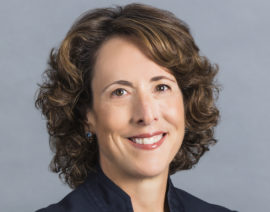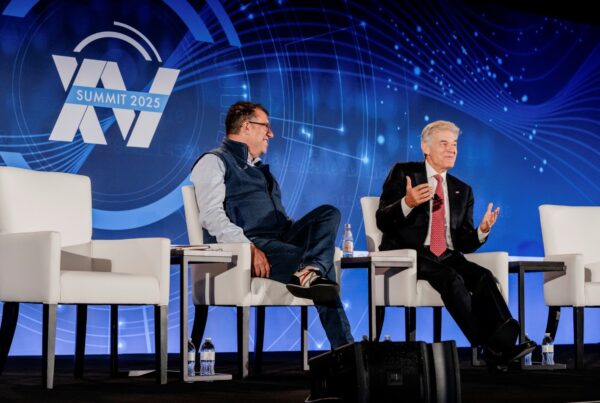Kim Keck says that the biggest business risk she has ever taken was bringing a joint venture of primary care physicians into the market. As CEO of Blue Cross Blue and Shield of Rhode Island, Keck aligned with Oak Street Health in a partnership to bring members personalized care services.
A year later, the innovative model is paying off, adoption among seniors exceeded forecasts by 100 percent, and care teams are focusing on prevention, social isolation, loneliness and other social determinants in ways they did not before.
Health Evolution Editor-in-Chief Tom Sullivan spoke with Keck about why the Oak Street joint venture was disruptive, what the organizations have achieved in the first year and the one thing she would do differently.
Health Evolution: You’ve described the arrangement with Oak Street as disruptive. How so?
Keck: It’s interesting. We brought in Oak Street Health and created the first joint venture in Rhode Island to deliver care in a new way. It’s more disruptive than what we’ve been doing in this market.
Health Evolution: Knowing ahead of time that it would, or at least could, be disruptive among primary care providers, what was the risk?
Keck: We had been partnering with providers in the state, spending in the hundred-million-dollar range to incent PCPs and had some better quality metrics to show for it. But transformation was not happening fast enough. So I wanted to do something that would be more of a catalyst.
When I brought in Oak Street, some PCPs embraced it, others said “how dare you compete with us?” When providers think they’re threatened they can act in ways that don’t help collaboration and we want to collaborate. I literally got a text from a CEO saying: “I implore you to cease and desist.”
Health Evolution: And are they still threatened or have most come around in the time since?
Keck: Much of the noise has subsided but the group that tried to rally providers to boycott BCBS has not come around and been productive. However, the problem would be if we go backward with collaboration – we have not gone backward. Oak Street is making strides.
Health Evolution: Now that the joint venture is about a year old, what have been the tangible results?
Keck: We’ve built three new centers serving the needs of Rhode Island’s rapidly growing senior population. Our state has the highest percentage of people aged 85 and older in the country, and approximately 25 percent of Rhode Islanders are Medicare–eligible. Oak Street’s holistic, preventive approach to health care goes beyond the scope of traditional primary care. The Oak Street model uniquely addresses social factors proven to influence health outcomes, like loneliness and isolation. Transportation is provided at no cost to members to ensure they have full access to the health centers, where they not only spend one-on-one time with a care team – twice as much time per patient compared to industry averages – but also are encouraged to attend social and educational events, like paint and sip, where they can connect with other seniors. For patients who require medical attention at home, Oak Street Health’s care teams provide that attention until patients are able to return to their local center. With its focus on preventive care and expertise in treating Medicare members with multiple chronic conditions, it’s no surprise that Oak Street has garnered an overwhelmingly positive response from our members. Adoption has exceeded expectations by more than 100 percent.
Health Evolution: And what would you do differently?
Keck: As far as what I would do differently in regard to the Oak Street Health partnership, the only thing that occurs to me is I wish we had introduced this model sooner and that we could grow it faster with the addition of more centers. The uptake tells me that there was, indeed, pent up demand for this personalized care model, which offers a distinctive community experience that is critical to the overall well-being of our most vulnerable seniors.
Health Evolution: What’s next? When you think strategically about 3-5 years into the future, what are your top priorities right now?
Keck: I think I would put them in three buckets. First is something I’ll call care transformation and that could be all things related to the convergence of ways care is delivered and paid for. The way healthcare is delivered and paid for needs to come together, literally under the same roof, and it’s happening — but not fast enough.
Top priority number 2. There’s a whole host of things no one has tackled systemically under convenience. It’s getting care and insurance when you need it and want it. That’s a huge umbrella of many, many things, but it’s building the kind of experience people have in all other aspects of their life. For example just getting a ride now with Uber or Lyft, you can rate the driver, map the route, take that through an entire day, or the same thing for shoes you bought. We have nothing like that in health care. It’s past time and we’re going to create that in Rhode Island.
The third bucket is comprehensive health and wellbeing. We need to bring health and wellbeing tightly together and I don’t mean an exercise challenge. It’s all aspects, including behavioral, community, mental health first aid, investing in social determinants.











